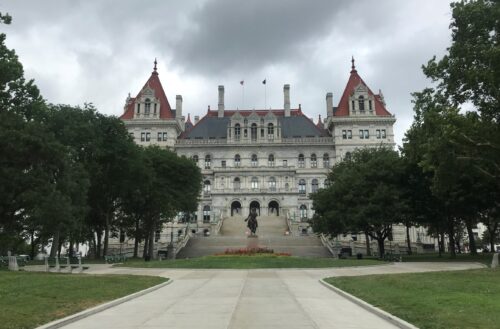
AFC submitted comments in response to the New York State Department of Health’s proposed changes to the state Early Intervention Program regulations.

AFC는 공립학교 시스템이 서비스를 제공할 수 있도록 교육 정책을 변경하기 위해 노력하고 있습니다. 모두 아이들을 효과적으로 우리는 정책 보고서 및 데이터 분석을 게시하고, 시 및 주 차원에서 증언하고, 언론을 통해 우리가 봉사하는 학생과 가족이 직면한 문제에 대한 관심을 환기시키고, 다른 옹호자, 부모, 청소년 및 교육자와 함께 다음 사항을 촉구합니다. 변화.
72 Results Found

AFC submitted comments in response to the New York State Department of Health’s proposed changes to the state Early Intervention Program regulations.

AFC testified before the City Council Committee on Education and Committee on General Welfare about how 3-K, Pre-K, and EarlyLearn can better serve students who are homeless, Dual Language Learners, and students with disabilities.

AFC testified before the City Council Immigration Committee about the importance of addressing barriers that immigrant families face in accessing preschool special education evaluations and other early childhood education programs.

AFC submitted comments to the New York City Board of Health on proposed regulations regarding child care, with a focus on children who are homeless and children with developmental delays or disabilities.


AFC submitted comments in response to the New York State Department of Health’s proposed changes to the state Early Intervention Program regulations.

AFC submitted comments to the New York City Board of Health on proposed regulations regarding child care programs in homeless shelters.

AFC submitted testimony for the New York State Joint Legislative Public Hearing on the 2017–2018 Human Services Budget proposal, urging legislators to increase investments in child care so that more children from low-income backgrounds can access early childhood education programs.


AFC and the ARISE Coalition, which is coordinated by AFC, each testified before the City Council Education Committee about the education proposals in the Fiscal Year 2016 Preliminary Budget.